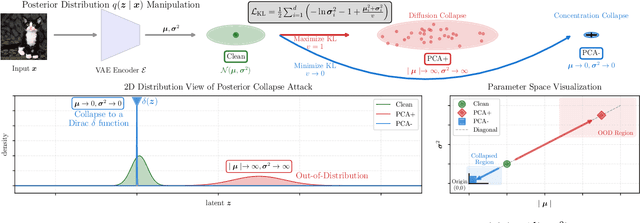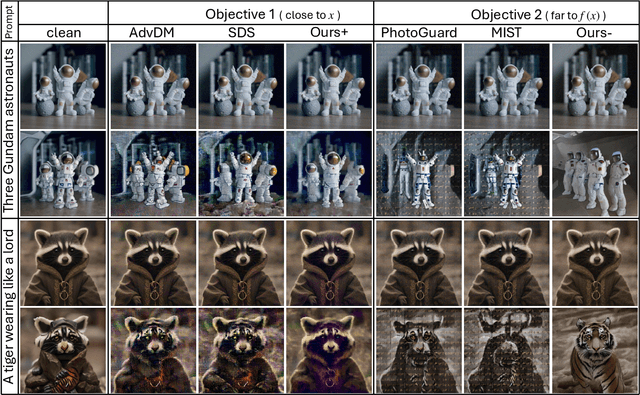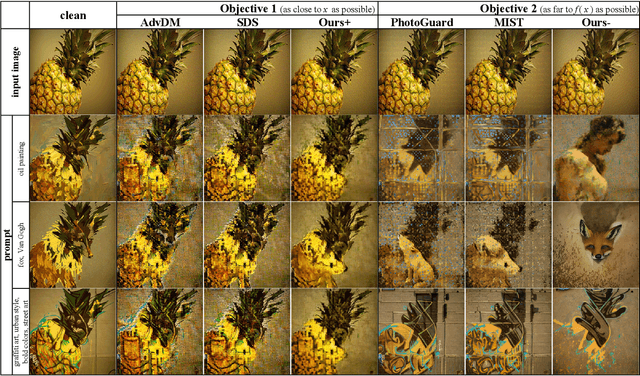A Grey-box Attack against Latent Diffusion Model-based Image Editing by Posterior Collapse
Paper and Code
Aug 20, 2024



Recent advancements in generative AI, particularly Latent Diffusion Models (LDMs), have revolutionized image synthesis and manipulation. However, these generative techniques raises concerns about data misappropriation and intellectual property infringement. Adversarial attacks on machine learning models have been extensively studied, and a well-established body of research has extended these techniques as a benign metric to prevent the underlying misuse of generative AI. Current approaches to safeguarding images from manipulation by LDMs are limited by their reliance on model-specific knowledge and their inability to significantly degrade semantic quality of generated images. In response to these shortcomings, we propose the Posterior Collapse Attack (PCA) based on the observation that VAEs suffer from posterior collapse during training. Our method minimizes dependence on the white-box information of target models to get rid of the implicit reliance on model-specific knowledge. By accessing merely a small amount of LDM parameters, in specific merely the VAE encoder of LDMs, our method causes a substantial semantic collapse in generation quality, particularly in perceptual consistency, and demonstrates strong transferability across various model architectures. Experimental results show that PCA achieves superior perturbation effects on image generation of LDMs with lower runtime and VRAM. Our method outperforms existing techniques, offering a more robust and generalizable solution that is helpful in alleviating the socio-technical challenges posed by the rapidly evolving landscape of generative AI.
 Add to Chrome
Add to Chrome Add to Firefox
Add to Firefox Add to Edge
Add to Edge